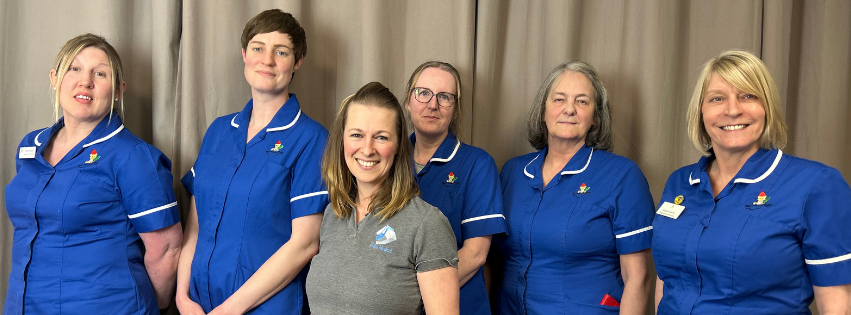A Guide to Post Operative Care
Undergoing surgery presents certain challenges once you are out of the theatre. Post-operative care begins once you arrive in the ward or recovery room, and continues even after you are discharged. Even with day surgeries, you will need to spend some time under medical observation before you can be discharged.
The goal is to ensure the best possible outcomes after surgery and the pain is properly managed. Post-operative care in the initial stages is left to the medical team. However, at some point this responsibility shifts to the patient, particularly at the point of discharge. This helps give them more control in regaining good health.
What Happens After Surgery
You will receive one-on-one nursing care as you recover from the anaesthesia. This close observation is important as a person may have an allergic reaction. Other vital signs that will be monitored include body temperature, breathing, pulse, and blood pressure. Regular checks on the surgical site will also be carried out to ensure no signs of excessive bleeding or infection.
You will be encouraged to start moving as soon as possible. This is to reduce the risk of blood clots developing as a result of lying down too long and blood pooling in your legs. Leg exercises, blood-thinning medications, and support stockings may also be used to promote better blood circulation.
During the time you will be on the ward, there will be a medical team that will oversee your post-operative care. Once you are deemed stable, you can then be moved to your hospital room, or if an outpatient procedure, begin the discharge process.
Before any patient that has undergone outpatient surgery can be discharged, they not only need to have stable vital signs but also be able to drink and urinate.
It is important to ensure that you have suitable care and equipment to cater to your needs once you are discharged. At the very least, you should have an adult who can assist you in the first 48-72 hours after having been under general anaesthetic or an epidural. You should not drive after having had surgery. Be sure to arrange for transport back home before the surgery.
Possible Complications After Surgery
Some level of discomfort is to be expected after surgery. The more invasive the procedure, the worse you might feel. Some general discomforts include:
- nausea and vomiting from the anaesthesia
- dry or sore throat from having apparatus down the windpipe
- thirst
- pain, soreness and swelling at the surgical incision site
- difficulty sleeping
- gassiness or flatulence
Some reactions may however indicate that there has been a complication with the surgery. Such serious complications could include:
- Shock – characterised by a severe drop in blood pressure that prevents blood from circulating.
- Severe blood loss or haemorrhaging
- Wound infection - when bacteria enter the surgical incision causing an infection that delays healing and may spread to other tissues and organs via the bloodstream.
- Deep vein thrombosis leading to a pulmonary embolism – whereby a blood clot forms in the leg or other extremity before detaching and travelling to lungs, causing blood flow to be cut.
- Urinary retention - inability to control or empty your bladder as a reaction to the anaesthesia
- Allergic reaction to anaesthesia
These complications can be life-threatening but are often detected early thanks to nursing care and monitoring of vital signs after surgery. They are more likely to happen soon after surgery, so while you are in the recovery room. Once you are stabilised, you will then be transferred to your hospital room for further post-operative care.
General Post-Operative Care
For inpatient surgeries, once you are out of the recovery room, you will be taken back to your hospital room. You will likely be hooked up to equipment for monitoring your oxygen levels and have an intravenous catheter in your arm for the delivery of medications as needed. Depending on the type of surgery you had and your response, you may also be attached to a heart rate monitor, have a feeding tube, and breathing apparatus.
Your vital signs will be regularly checked and noted down, with medication being administered as per your doctor’s instructions. Some may be orally given, while others may be administered through the IV line or an injection.
If possible, you will be encouraged to move around to prevent blood clots from forming, encourage circulation, and maintain muscle strength. Again, depending on what kind of surgery you have had, this may require a physiotherapist to come in to help you with exercises. Your surgeon will also regularly come in to review your condition and determine when you can be discharged.
Cosmetic Surgery Post-Operative Care
With elective surgeries, those that come with advanced notice, patients can better plan for post-operative care. Most cosmetic surgery procedures are elective so your doctor will have advised you of what to expect after the surgery. For instance, for those that have undergone facial procedures, like rhinoplasty, bruising around the face and neck are to be expected.
Your doctor will inform you of the normal reactions to expect with the particular procedure you will undergo. This should help you determine what is expected and what may require a return visit to the hospital or emergency room. Generally, for cosmetic surgery post-operative care you are expected to:
- Take it easy. There is likely to be discomfort so you should try to rest as much as possible, giving your body a chance to recover properly.
- Have a family member or friend who can stay with you for the first 2 or 3 days. They can help ensure you take your medication correctly, prepare your meals, help you keep clean and go to the bathroom, and act if there is an emergency. If you have no one available, talk to your doctor who can put you in touch with private home nursing.
- During the first 24 hours, you may not have much appetite. However, do try to take even a light meal as you are taking your medications. Ensure you stock up on nutritious foods for later on that will help support your recovery. Be sure to also drink plenty of water to replenish fluids lost during surgery and boost circulation.
- Expect some level of pain and discomfort. Even with cosmetic surgeries, you will have undergone an invasive procedure. The body parts worked on will certainly feel tender and sore.
- Take medication as prescribed. During discharge, you will have been given several medications, including antibiotics and painkillers. Take them just as prescribed. Ensure pain medication is taken with food as it can irritate the stomach and cause further nausea. Do not avoid pain medication when needed as this can stress your body and prolong your recovery.
- No exercise. Going back to your regular fitness routine is something that needs to be done slowly and with the approval of your doctor. Avoid any rigorous activities, including tough household chores. Especially in the first week of recovery, you should just walk around the house from time to time to help with circulation and prevent blood clots. Exercising too soon can cause your surgical site to swell up further as your blood pressure rises.
- You may experience a dry or sore throat. This may last a couple of days so drink something warm and soothing or use over the counter lozenges for relief.
- Use icepacks if allowed. Some procedures allow for use of icing to reduce swelling and discomfort. Apply them as directed by your doctor to prevent injuring your skin.
- Be aware of likely physical reactions to the surgery. As mentioned bruising around the face and neck with facial procedures is normal. Swelling is also common for surgical sites. The majority of this should come down in the following weeks. For some procedures like nose surgeries, the swelling may take up to a year to completely come down.
- Practice good wound care. There will likely be some discharge with light bleeding for a while. Ensure you keep the incision area clean and moist, using whatever solutions you have been given. Watch for white or yellow pus-like discharge, an inflamed incision and a fever. This may indicate an infection and should be urgently addressed with your doctor.
- Expect some tingling. This is especially common with cosmetic procedures to the face where tiny nerves are likely to have been cut. As they heal, you may experience varied sensations from numbness to sharp pain. This is to be expected, in some cases, for as much as a year after the surgery.
- Perform lymphatic drainage massage to help reduce surgical swelling and scar tissue forming. This stimulation can help improve lymph vessel function and reduce recovery time. When lymph fluid is encouraged to flow, it helps create new pathways and remove toxins and other waste from body parts they are trapped in. can be especially helpful for facial and breast surgeries, and liposuction procedures.
Post-Operative Care at Home
Once you are discharged, two aspects will require your due attention. These include:
- Pain Management
Pain medications will be provided during discharge. Ensure that you take them as directed by your doctor. Many people try to limit their use of such medication for fear they will become addicted. If you have a history of pain medication addiction, do inform your doctor so he can come up with a suitable pain management plan. Proper pain management will impact how quickly you recover from the surgery so follow the instructions given. Avoid driving or operating heavy machinery when using pain medication. Also, avoid taking any alcohol with pain medication.
- Wound Care
Keeping your wound clean and moist will help in recovery. A pink surgical incision is normal. If it turns red and is bleeding more heavily, accompanied by swelling and pus-like discharge, be sure to get in touch with your doctor. This may indicate an infection. Use the dressings provided by your doctor and apply them as directed to provide the right amount of compression. If there is a drain, be sure to empty it as directed about 3-4 times a day and keep track of output. The drain will be removed during a later post-operative appointment.
Shockwave Protocols
Shockwave therapy involves the delivery of acoustic waves into targeted areas of the body. The tissues react by stimulating tissue repair, cell growth, analgesia and restoring mobility. Treatments last between 10-60 minutes, with the intensity being adjusted based on clinical examination and patient response. Pain relief is often felt after the first treatment, with the effect amplified through subsequent sessions.
Shockwave therapy is used as an alternative to other interventions like surgery. It is not used as an aid to post-operative recovery on open wounds. It can however be complemented with other treatment measures such as immobilisation and pain medication, as well as reducing scar tissue formation. Experiencing some soreness, mild bruising and swelling after treatment sessions is common. Patients are advised to refrain from physical activity for about 48 hours after sessions. There is no prolonged recovery period to be expected after sessions.
When to Call Your Doctor or Emergency Services
Once you have been discharged, you will not have fully recovered. Complications can still arise, so monitor your condition to ascertain if you are going through a medical emergency. Some situations which may warrant a return visit to the hospital include:
- A fever higher than 38 degrees
- Pus-like discharge from the surgical incision site
- Increased pain
- Increased bleeding at the surgical site











